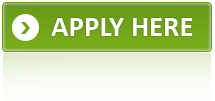The Two Factors That Will Make Or Break Your Credit Score
If you’re confused about how creditors measure your ability to pay back loans, read on and discover the two things absolutely must do to raise your score to its highest level.
Even if you do everything else wrong, these two actions will keep your credit score and ability to get a loan in good shape.
If you already have a good score – over 700 – don’t let these actions slip through the cracks and your score will stay high. If your score is lower — especially below 650 – start taking these two steps today and you’ll see drastic improvement in the next 6 to 12 months.
Factor 1: Pay Your Bills On Time
Obvious right? But, it’s easier than you think to pay late. And here’s something you may not know. You do not get a ding on your credit report for being one day late. This only happens when you are 30 days or more late. But don’t cut it too close, especially if you mail your payments in.
Also, keep in mind that credit cards, personal loans, auto loans and home loans are the most important bills to pay on time. Rent, utility, phone and cable payments usually don’t get reported, so they have no effect – positive or negative — on your credit score. Of course, you may face other consequences like late fees or disconnection, so if you’re in a bind financially, make sure you make the smart choice. Keeping your power on may trump having a high credit score.
Avoid the Seven-Year Slump
If you make a late payment, it stays on your report for seven years. But here’s an inside secret many don’t know. It usually stops affecting your credit as time goes by. The first 24 months is the key time frame. How you’ve managed your payments has the most impact during the first two years on your credit report.
Factor 2: Use Your Credit Limits Wisely
The next big thing to worry about is your available credit and how much of it you use. Not many insiders will tell you this, but credit reports were actually created to make sure consumers paid their credit cards on time.
A credit card is an unsecured debt, which means the debt is not backed by anything like a car or a home. If you fail to pay a car or home loan, the bank comes and takes your asset – in this case the car or home you bought.
But what happens if you don’t pay your credit card? The bank can’t take that trip you took last month, the gas you put in your car a week ago, or the groceries you bought yesterday. All they can do is ding your credit – and penalize you by making it harder for you to get credit next time or at a decent interest rate.
Credit Cards Are a Big Deal When It Comes to Your Credit Report
That’s why credit cards are weighted so heavily in your credit score. In fact, they affect 30 percent of your score. What’s the only factor more important? You guessed it…paying your bills on time, which accounts for 35 percent of your score.
Paying your credit card on time falls under the previous factor, but credit utilization or how much of your available credit you actually use falls under this one.
Here’s how it works. Every credit card has a credit limit. This is the amount of money you can access. It might be $500, $1,000, or in some rare cases $50,000 or more. But this is all the credit you have to use. If you have a$500 credit limit, you can’t use the card to buy something that costs a $1,000.
You might be able to go a little over your limit, but not much. And if you do go over it, you’ll pay a hefty over-the-limit fee.
Explaining Credit Utilization
Let’s use $1,000 for an example because it is a good round number. If you carry a balance or charge $300 on the card, you’ve used 30 percent of your available credit. (300 is 30 percent of 1,000). According to your credit report, you have a credit utilization ratio of 30 percent.
Thirty percent credit utilization is thought to be the “magic” level by many credit- scoring experts. Go above that level and you get penalized. Stay below it and you get rewarded. Also, the higher you go above 30 percent, the more you get penalized and your score drops. The lower you drop below it the more your score goes up.
Before you do anything else to raise your credit score and improve your interest rates, get these two things right. If you do, you’ll be way ahead of most borrowers when it comes having a high score and qualifying for credit cards and loans.











